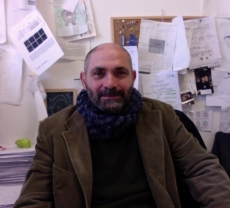NOTCH1 Plasticity & Epidermal Disease Lab
RESEARCH
Our laboratory focuses on understanding how alterations in calcium homeostasis, cell-cycle regulation, and stress response pathways affect epidermal physiology and carcinogenesis. We aim to uncover the molecular mechanisms underlying impaired cell adhesion, differentiation, and DNA damage response in skin pathologies and cancer, with the goal of identifying novel therapeutic strategies.
Main topics of our lab include:
1) Molecular mechanisms of Hailey-Hailey Disease (HHD)
Hailey-Hailey Disease is a rare autosomal dominant disorder caused by mutations in ATP2C1, a gene encoding a calcium ATPase responsible for Golgi Ca²⁺/Mn²⁺ homeostasis. Loss of ATP2C1 disrupts keratinocyte adhesion and differentiation, yet the mechanisms linking this defect to disease manifestation remain elusive. We discovered that ATP2C1 deficiency alters NOTCH1 stability and trafficking, leading to aberrant localization and degradation of the active NOTCH1 form. This dysregulation contributes to the loss of epidermal integrity and altered skin homeostasis. We are currently investigating how restoring proper NOTCH1 turnover could represent a potential strategy to counteract disease progression.
2) Functional interplay between ASK1 and p21 in epidermal homeostasis and tumorigenesis
Keratinocyte proliferation and death are tightly coordinated to maintain tissue balance under stress conditions. Our studies revealed that the absence of p21 leads to increased keratinocyte proliferation accompanied by enhanced apoptosis through ASK1-mediated pathways. Using single and double mutant mouse models, we demonstrated that ASK1 deletion rescues the apoptotic phenotype in p21-deficient epidermis and impacts skin tumor susceptibility. These findings identify a crucial checkpoint mechanism through which p21-dependent ASK1 regulation ensures the equilibrium between cell survival, stress response, and carcinogenesis.
3) Dynamics of NOTCH1 modulation in cancer
NOTCH1 plays a dual and context-dependent role in carcinogenesis, functioning as both a tumor suppressor and an oncogene. Our current research focuses on understanding how NOTCH1 modulation influences cell fate during DNA damage response and cell-cycle progression. We are exploring how fluctuations in NOTCH1 activity dictate the balance between proliferation and checkpoint maintenance, and how these mechanisms contribute to cancer initiation and progression. By dissecting the molecular logic behind NOTCH1 plasticity, we aim to reveal novel vulnerabilities that could be exploited for therapeutic intervention in epithelial cancers.

